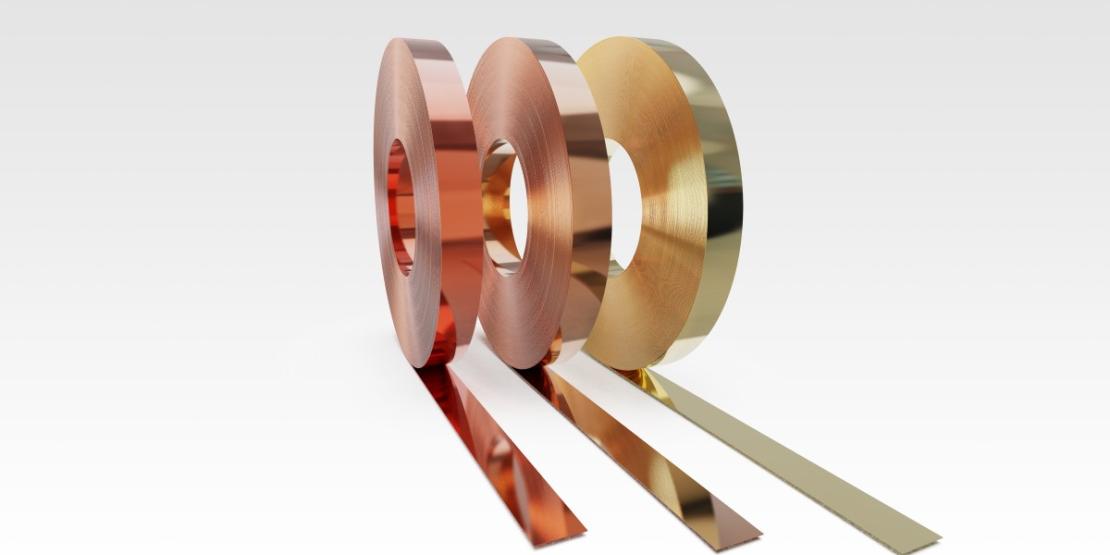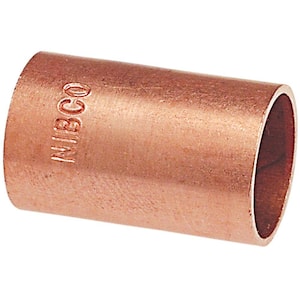Exploring the Diverse Applications of Copper Products in Modern Industries
From improving the performance of electrical systems to playing a vital role in sustainable power technologies, the adaptability of copper is apparent. As sectors increasingly focus on advancement and sustainability, the diverse applications of copper require a closer exam, specifically regarding their potential effect on future technical improvements and ecological techniques.
Electric Applications of Copper
Copper is an essential material in the electric industry, representing around 60% of the overall demand for non-ferrous metals worldwide - Copper Products. Its remarkable electric conductivity, which is almost two times that of light weight aluminum, makes it the preferred choice for a vast variety of electric applications. From electrical wiring systems in industrial and household structures to high-voltage power transmission lines, copper makes certain performance and reliability in electrical energy delivery
In enhancement to wiring, copper is indispensable to the manufacturing of electrical parts such as generators, motors, and transformers. These parts utilize copper's thermal conductivity and pliability, important for heat dissipation and reliable performance. Moreover, copper's resistance to rust enhances the life-span and durability of electrical systems, making it a cost-effective solution in the lengthy term.
The development of renewable energy resources, such as solar and wind power, has actually further boosted the demand for copper in electrical applications. As markets shift in the direction of lasting power services, copper's function comes to be much more critical. In general, the flexibility and performance attributes of copper solidify its status as a cornerstone material within the electrical field, driving advancement and performance throughout numerous applications.
Pipes and Piping Solutions
In contemporary plumbing systems, the choice of materials significantly affects both capability and long life. Copper has actually become a favored choice because of its distinct properties, including deterioration resistance and antimicrobial features. These characteristics guarantee that copper piping remains safe and resilient for transferring potable water, a critical factor to consider in residential and business applications.
One of the key benefits of copper in plumbing is its ability to withstand heats and pressures, making it appropriate for a selection of applications, from warm water systems to home heating and cooling networks. Additionally, copper's flexibility permits much easier setup in intricate piping formats, minimizing the risk of leakages and failures.
One more noteworthy advantage is copper's long life-span, often surpassing 50 years with appropriate upkeep. This long life not just reduces substitute costs but also adds to sustainable techniques by decreasing waste. Additionally, copper's recyclability aligns with contemporary ecological requirements, advertising a circular economy within the pipes sector.
Copper in Renewable Resource
The convenience of copper extends beyond pipes applications, playing an important function in the eco-friendly power market. Its outstanding electrical and thermal conductivity makes it an important product in the production and distribution of eco-friendly power sources, particularly solar and wind power. In solar panels, copper is made use of in photovoltaic or pv cells and electrical wiring, helping with effective energy conversion and transmission. Its resistance to rust ensures durable efficiency, which is crucial for taking full advantage of power output with time.

Furthermore, as the worldwide need for electrical vehicles (EVs) rises, copper's function in battery systems and billing infrastructure becomes much more significant. The navigate here material's capability to perform electricity successfully is integral to the performance of EV batteries, enhancing variety and charging speed.
Copper's Role in Electronics
Electronics manufacturing relies greatly on copper's exceptional homes, especially its high electrical conductivity and thermal efficiency. These features make copper a suitable option for a large range of digital components, including connectors, circuit boards, and wiring. The steel's capability to efficiently transfer electric signals makes certain minimal energy loss, which is essential in high-performance electronic tools.
Additionally, copper's thermal conductivity plays a substantial function in warm dissipation, safeguarding sensitive parts from overheating. This is especially crucial in contemporary electronic devices, where portable styles bring about enhanced heat generation. Copper is additionally favored for its malleability and ductility, permitting it to be quickly formed into detailed styles that meet the needs of innovative electronic applications.
With the surge of consumer electronics, telecoms, and electrical vehicles, the need for copper in the electronics field continues to grow. As advancements in technology advance, copper stays indispensable to accomplishing greater efficiency and reliability in electronic items. Its recyclability even more improves its appeal, as producers look for sustainable options without compromising top quality. Thus, copper stays a cornerstone material in the ever-expanding area of electronic devices.
Innovative Uses in Manufacturing

One remarkable application is in additive manufacturing, where copper-based products are employed in 3D printing procedures. This allows for the production of complex geometries and light-weight elements, particularly in the aerospace and vehicle markets. Additionally, copper's thermal conductivity makes it a suitable choice for warm exchangers, boosting efficiency in commercial cooling systems.
Additionally, the surge of smart manufacturing has seen the consolidation of copper in IoT tools, where its conductive this link capacities support advanced picking up modern technologies. In the world of renewable resource, copper is pivotal in the production of solar panels and wind turbines, assisting in much more effective power conversion and circulation.
As sectors pursue sustainability and technology, copper's adaptability and efficiency proceed to place it as a critical material, driving developments in production and adding to the development of smarter, more efficient products.
Conclusion
In recap, copper products demonstrate amazing adaptability across different modern-day industries. Copper Products. Their superior conductivity enhances electric applications, while deterioration resistance makes certain integrity in plumbing. The integral duty of copper in renewable resource and its necessary feature in electronic devices emphasize its significance beforehand lasting techniques. In addition, innovative usages in producing highlight copper's adaptability and enduring value. Collectively, these applications highlight copper's essential payment to technological progression and industrial effectiveness in modern culture.
From enhancing the effectiveness of electric systems to playing a vital duty in eco-friendly energy modern technologies, the flexibility of copper is noticeable. As markets progressively prioritize technology and sustainability, the varied applications of copper require a closer evaluation, especially regarding their possible impact on future technical advancements and environmental methods.
The growth of eco-friendly power resources, such as solar and wind power, has additionally increased the demand for copper in electrical applications. Generally, the adaptability and performance attributes of copper strengthen its standing as a cornerstone material within the electric industry, driving technology and performance throughout different applications.
The convenience of copper extends beyond plumbing applications, playing a crucial role in the sustainable energy sector.